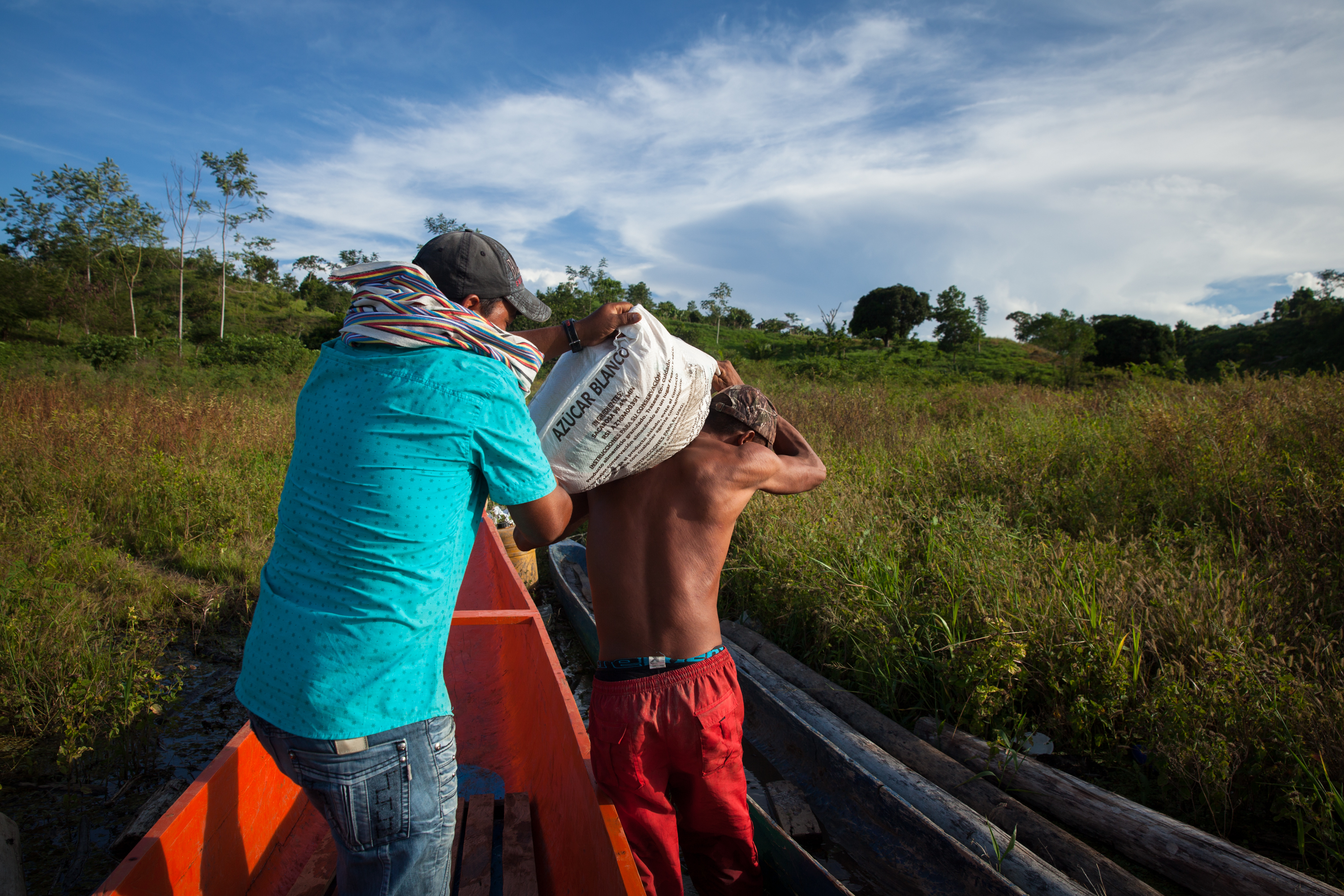Every week, IRIN's editors offer a selection of important and/or interesting resources that may have flown under your radar. This week's humanitarian reading list:
Colombia’s peace conundrum
Colombia’s negative referendum result may have been a setback on the road to peace, but many Colombians living in towns and cities had already started to return to the countryside, spurred by promises of rural development and land redistribution. During peace negotiations, both the Colombian government and the FARC rebels agreed on the need for a land development policy that would offer farmers alternatives to illicit drug production and alleviate rural poverty. This report by Lutheran World Relief examines the challenges and opportunities that a more peaceful future could offer for rural Colombians. It pulls together experiences from local Colombian groups to offer potential models and recommendations for supporting small-scale and family-run farms.
Aggregating abuses
“Many civil society organisations do a courageous job of calling attention to abuse in their countries,” notes CIVICUS Monitor. “Yet these sources of information are not triangulated, and the voices of local groups are often missing from prominent international indexes.” This new online tool aims to address this problem by creating a platform to “collect, curate and communicate the many strands of information about civic space”. The tool filters information through a variety of data streams, including media monitoring and analysis of reports produced by local and international groups, as well as information provided by individuals. The Monitor then uses these streams to produce ratings and analysis for each country, which are represented on an interactive map.
Political tweeting
Forget using Facebook and Twitter to tweet cat pictures. In Africa, the importance of social media as a vital source of communication and information, especially as a political instrument for the masses, is growing. The second edition of the Governance Social Media Index report shows that in light of this, politicians in Ghana have increased their use of social media ahead of the 2016 general elections. But if social media is a friend of the everyman, how do governments feel about this sudden democratisation of information? Already, the inspector general is talking of disconnecting social media to “maintain peace” on election day in Ghana. This is the latest example of a worrying trend in social media censorship that has recently cropped up in Burundi, Central African Republic, Egypt, Kenya, Niger, and Uganda. In countries where freedom of the press is limited, social media often takes on a primary role. But as governments switch on to its growing power, it may inevitably get switched off.
Halloween’s Aleppo connection
We’ve got you covered for Halloween reading thanks to Muftah co-editor Alexander Schinis's short piece informing non-slasher buffs that Michael Myers’ first creepy film appearance was produced by Aleppo-born Moustapha Akkad. One expert draws a link between the villain's killing of his sister and real-life “honor killings”. Akkad just reckoned the films gave boys an excuse to hug their girlfriends in the cinema. Aside from the Halloween flicks, Akkad was perhaps best known for directing Anthony Quinn in The Message, a controversial film about the birth of Islam that managed to never show the Prophet Mohammad on screen. Both American and Syrian, Akkad died in a way that is sadly becoming increasingly international – a hotel bombing by extremists (al-Qaeda, in this case). His death was mourned by thousands in his home city, of which he once said: ""Aleppo is never far away, it is always in the heart".
One from us:
Afghanistan’s deepening migration crisis
Afghanistan’s notoriously hard winter is fast approaching. That is not good news for the estimated one million people who’ve either been internally displaced or forced back from neighbouring Pakistan or Iran this year, four times the number the UN said it had planned to provide assistance to. These returns come against the backdrop of a worsening war, a stagnant economy, and political paralysis. Our in-depth series this week highlights people at the forefront of this crisis: Rohullah Qaderi, who faces deportation from Germany even though he was beaten and escaped death threats and a kidnapping attempt back in Afghanistan; Rakshe Kanwal, who was forced to choose between staying in her native Pakistan or taking her children to Afghanistan where her husband has been deported; and Rezwan, who was deported from Iran straight to his mother’s funeral in Afghanistan after Iranian border guards shot and killed her as they made their way to Turkey.
Coming up:
The Core Humanitarian Standard – 4 November, Geneva
Putting those affected by crises at the heart of humanitarian response has become a popular turn of phrase of late. But for many critics, aid organisations still have a long way to go (recall: “putting people at the centre” landed in the losers category in our World Humanitarian Summit round-up). And yet the Core Humanitarian Standard on Quality and Accountability (CHS), a new set of criteria for judging whether humanitarian organisations involve – and are accountable to – affected communities in their work, appears to be gaining traction within the sector.
Still, this is dangerous territory: previous initiatives to regulate performance have faced significant resistance. “We have almost a pathological fear of measuring what we do,” CHS Alliance head of policy David Loquercio once noted. Next week, the alliance, which helps its 240 member organisations apply the standard, looks back at progress made and lessons learned in the two years since its launch. The public event on 4 November in Geneva covers everything from harmonised reporting requirements to verification schemes to whether a single international standard can help local NGOs prove themselves in a crowded playing field. Find the full list of topics and speakers, including our Director Heba Aly, here.
es-ks-as-jf-ha/ag
(TOP PHOTO: Supplies are unloaded for processing coca at a nearby farm. CREDIT: Erika Pineros/IRIN)




